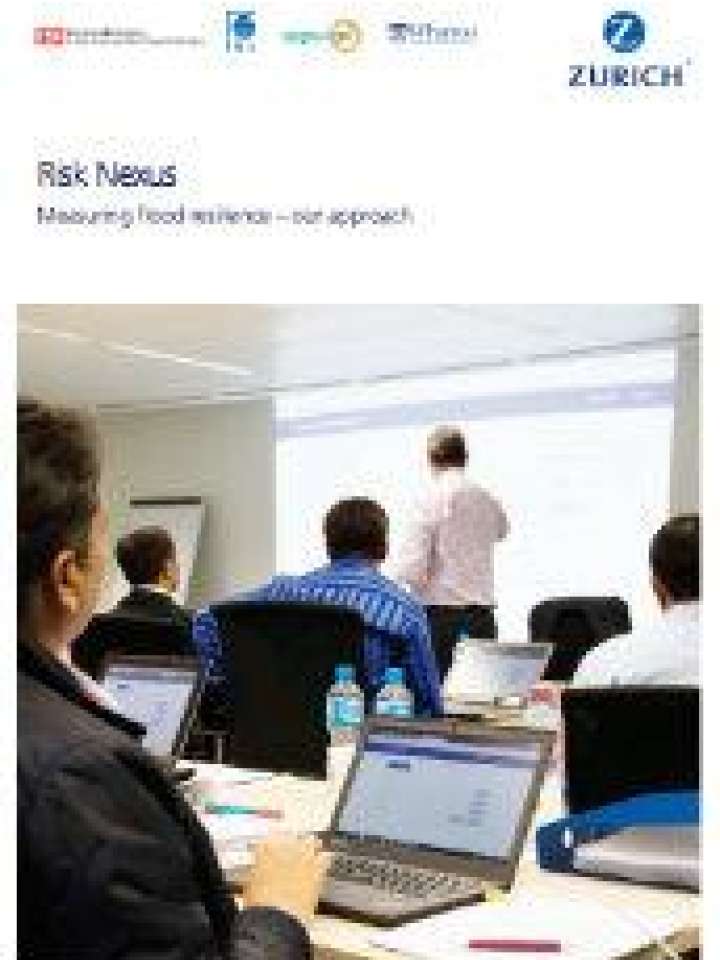Measuring flood resilience - our approach
To better define, measure and improve resilience to flooding, and demonstrate that preventative measures taken to address underlying problems before a flood are more effective at stemming losses at the community level, this publication describes the Zurich Insurane Group's methodological approach to developing the 5C-4R measurement framework and tool set for measuring flood resilience. This approach addresses the lack of an empirically-verified general measurement framework for disaster resilience as of 2014, according to the UNDP, and the resulting tool was tested and refined for usability in 2014-15 in over 20 flood-stricken communities in Peru, Mexico and Nepal.
The process began with developing the ‘5C-4R community-based flood resilience measurement framework’, to better understand the origins of resilience. This framework identified sources of resilience according to the five capitals (5Cs), Human Capital, Social Capital, Physical Capital, Natural Capital and Financial Capital, along with the 4 properties of a resilient system (4Rs), Robustness, Redundancy, Resourcefulness and Rapidity. The tool set developed aims to serve as an ‘end-to-end’ flood resilience management tool that generates overall and category scores from A through D, and numeric results to assess a community’s resilience level. By identifying and describing factors that received a low score, and showing how they relate to each other, the tool can help practitioners support and guide processes to improve resilience.
Explore further
